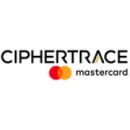Blockchain has steadily earned its place as one of Silicon Valley’s biggest tech exports, weaving its way through a diverse range of sectors including fintech, telecommunications and healthcare. When many companies dove headfirst into the Bitcoin craze several years, it opened up new avenues for exploration. According to a Deloitte survey conducted in 2019, a vast majority of companies recognize the benefits of incorporating blockchain technology into their organizations’ operations, more so than they have in past years.
While San Francisco is an undeniable cryptocurrency hotspot, Silicon Valley also hosts numerous blockchain startups eager to leave their marks on the crypto economy. With so many startups seeking to disrupt industries across the globe, it’s no surprise that this tech region has seen a surge in cryptocurrency competitors in recent years, all of whom are united by their desire to make financial markets simpler, safer and more accessible. Here’s a look at Silicon Valley blockchain startups redefining the world of finance.
Silicon Valley Blockchain Startups To Know
- BlockCypher
- ThunderCore
- Blockstream
- CipherTrace
- Cryptanna
- MakerDAO
- Stampery
Founded: 2017
Location: Redwood City
What they do: Securitize is a compliance platform and protocol designed for issuing and managing digital securities on the blockchain. Their Digital Securities Protocol enables fully compliant trading across multiple markets simultaneously, reducing costs, saving time, and providing a higher quality experience for investors. Securitize partners with exchanges, broker-dealers, custodians of crypto, escrow services, and other financial infrastructure.
Founded: 2018
What they do: Cryptanna is developing an ecosystem of autonomous trading bots in an effort to make cryptocurrency simpler. The company’s technology allows users to manage all of their investments from one command center, offering them the option to buy or trade strategies within a community of crypto-traders and bot developers in their marketplace. Cryptanna collects only .1 percent of users’ profits, removing monthly payments and fees if users' strategies fail to return a profit.
Founded: 2014
What they do: Blockstream has built a crypto-financial infrastructure that is designed to make financial markets more efficient by reducing reliance on trust. The company specializes in creating sidechains, which enable the introduction of brand new features to Bitcoin and the issuance of new digital assets. Blockstream offers a variety of products and services that simplify the adoption of Bitcoin and peer-to-peer finance.
Founded: 2017
What they do: Alchemy aims to accelerate digital currency adoption through its blockchain development platform, which supports creation of cryptocurrency apps and other DeFi solutions. For example, the company’s technology helps developers launch enterprise-grade wallets that are optimized to streamline the user onboarding experience.
Founded: 2017
What they do: ThunderCore is a high performance EVM-compatible public blockchain with fully decentralized trust that brings scale to decentralized applications. All data stored within the company’s system is tamper-proof without a single point of failure, while all transactions and changes are tracked, permanently recorded and easily verified. ThunderCore utilizes a breakthrough consensus protocol that overcomes the limitations of Nakamoto consensus, maintaining fully decentralized trust while substantially improving performance.
Founded: 2015
What they do: Stampery relies on the Bitcoin blockchain to ensure the existence, integrity and attribution of communications, processes and data vital to organizations. The company enables businesses to generate immutable and independently verifiable records of everything of importance, offering security, accountability, better digital evidence, forensic auditability and infinite scalability. With Stampery, tracked data can be independently verified from anywhere in the world, even if spread among various international organizations.
Founded: 2014
What they do: MakerDAO is a decentralized autonomous organization on the Ethereum blockchain with its own coin, the Dai, which can be used by anyone, anywhere, anytime. The Dai is a price-stable currency that users can control, with the ability to be instantly generated on users’ own terms. Built on top of audited and formally verified smart contracts, MakerDAO’s platform for decentralized finance, Oasis, provides users a space to trade tokens, borrow Dai and earn savings.
Founded: 2015
What they do: CipherTrace develops cryptocurrency anti-money laundering services, cryptocurrency forensics, and blockchain threat intelligence solutions. The company allows users to trace transaction flows and comply with regulatory anti-money laundering requirements, working with exchanges, banks, investigators, regulators and digital asset businesses. CipherTrace protects banks from crypto-laundering risk and grows the crypto economy, making virtual assets safe for mass adoption.
Founded: 2013
What they do: Paystand is developing a more open financial system through blockchain and cloud technology, beginning with B2B payments. Their software makes it possible to digitize receivables, automate processing, eliminate transaction fees, reduce time-to-cash and enable new revenue. Paystand’s next-gen B2B payment engine enables users to seamlessly accept electronic payments, creating more choice, speeding up tracking and simplifying reporting.
Founded: 2014
What they do: Founded by mobile banking veteran Bill Barhydt, Abra offers an app where users can buy, sell, and hold 30 cryptocurrencies, 50 fiat currencies, and the first ever crypto index, the BIT10. With new stablecoin deposit and withdrawal options, the app offers an affordable option to begin instantly investing. Currently available in more than 150 countries, Abra is dedicated to creating an open global financial system that is easily accessible by everyone.
BlockCypher
Founded: 2013
What they do: BlockCypher provides blockchain web services, enabling companies to easily build blockchain applications with their web APIs and callbacks. Their modular, cloud-optimized architecture is enterprise-grade for scalability and reliability, while their robust data stores contain all transactional data for the entire blockchain. BlockCypher’s technology provides high throughputs, linear scaling and low-latency.












